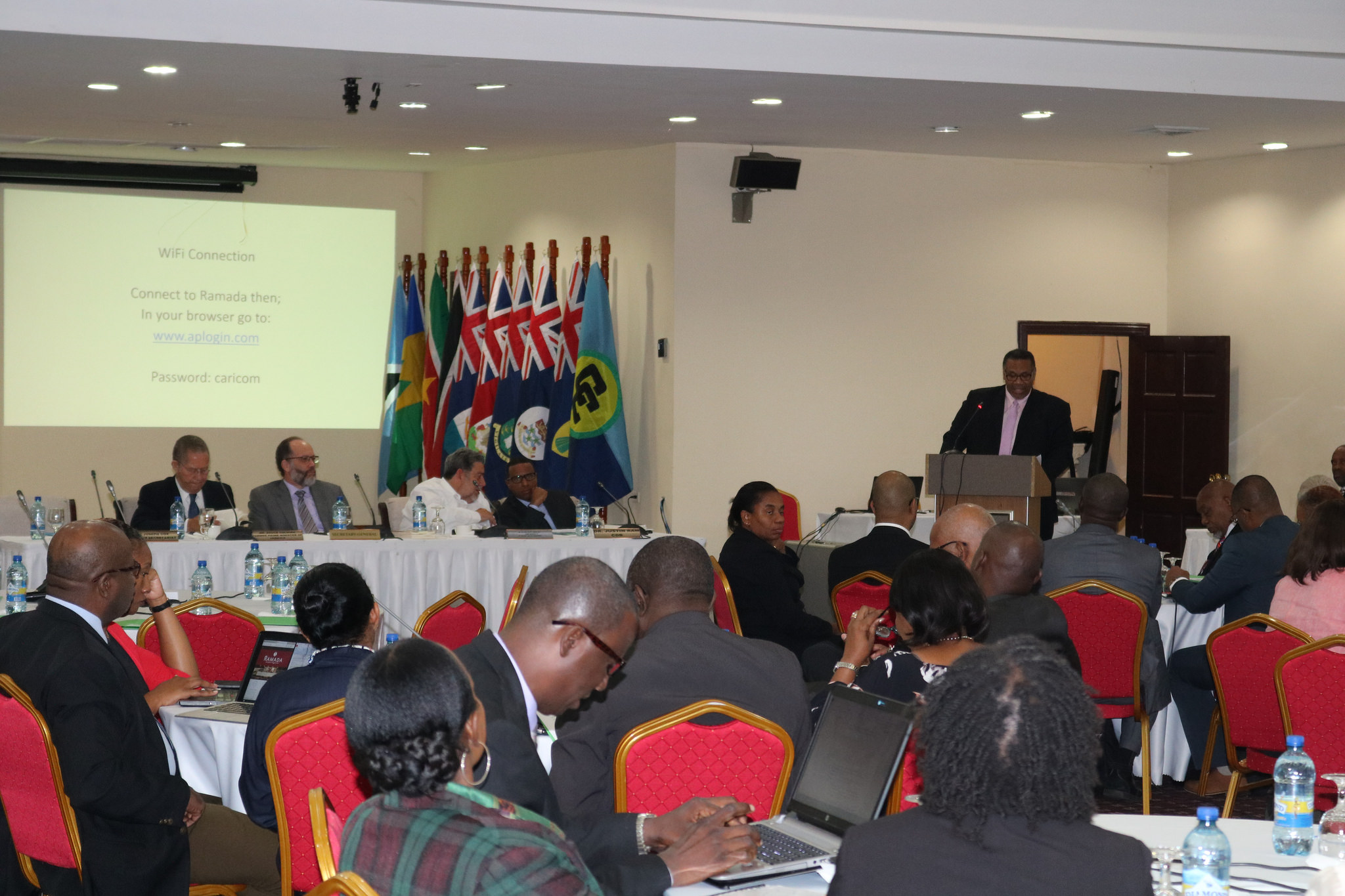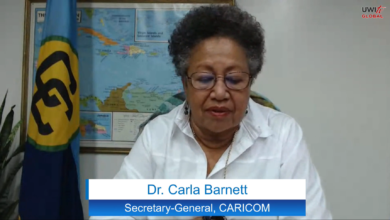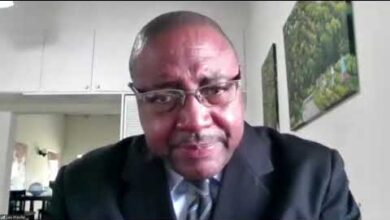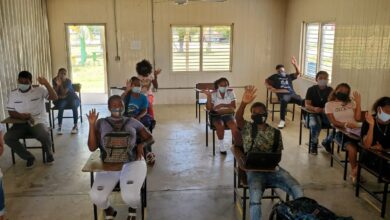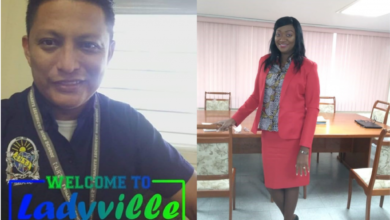Stakeholders at the just-concluded Stakeholder consultation on the CARICOM Single Market and Economy (CSME) agree that there is value in, and benefits to be derived from the CSME.
The common thread of the two-day Consultation held in Georgetown, Guyana, was that the Caribbean Community (CARICOM) needed the CSME which seeks to create a single, enlarged, economic space by removing restrictions resulting in the free movement of goods, services, people, capital and technology. The Single Market component of the CSME was established on 1 January, 2006.
While there was progress, the CSME agenda needed to move along much faster, CARICOM Secretary-General, Ambassador pointed out in his opening remarks. The Secretary-General highlighted the slow pace of implementation of several decisions, including those related to Contingent Rights and matters related to Public Procurement. He warned that the slothful pace was having an impact on the private sector and on the credibility of the Community.
CSME Consultation – CARICOM Secretary-General Amb. Irwin LaRocque on implementation from Caribbean Community on Vimeo.
How to get it done
Where there is divergence, however, is what should be done to breathe new life into regional flagship programme which has been plagued by implementation issues and buy-in by the regional populace.
There was uncertainty about the effectiveness of the programme’s architecture. Participants expressed concern about how the disparities in economic development and unsustainable debt in the Region, unemployment and the heavy toll of natural disasters would impact the CSME. Other key matters that were raised at the Consultation that attracted more than 50 participants included the need for Member States to be held accountable for the commitments that they make at the regional level. Honesty with national populace, greater public awareness and advocacy, and acknowledgement that not all parties to the CSME will benefit in the same way, were also addressed.
The frank discourse benefited from the thoughts of high level panelists Dr. the Hon. Ralph Gonsalves, Prime Minister of St. Vincent and the Grenadines and Mr. Bruce Golding, former Prime Minister of Jamaica.

Much more to be done
Prime Minister Gonsalves pointed out that a lot more needed to be done to achieve the objectives of the CSME. He was not optimistic about the achievement of some of the CSME goals in the “foreseeable future” given the nature of the economies and the uneven though combined state of under-development, among other factors.
He offered a number of recommendations including strengthening the Revised Treaty of Chaguaramas to better serve disadvantaged countries, regions and sectors; improvement in functional cooperation, foreign policy coordination, security arangements and trade activities of the Single Market; restructure the CARICOM Secretariat and improve air and sea transport in “every conceivable way”. He also made the case for revamping the CARICOM governance structure to “accommodate, in a measured way, supranational initiatives in targeted areas of integration, including trade and economic integration”.
In introducing the high level panel, Mr. Joseph Cox, CARICOM Assistant Secretary-General Trade and Economic Integration also referred to supranationality. ” …In our Region, our model of integration is the most difficult construct of all integration models, where no supra-national authority exists and thereby the process of enforcement is limited. The job of forging a union is never finished, as economic, political and cultural tensions constantly nibble at the ties that bind. CARICOM is a collective of sovereign nations bound by common economic, social and political ideals as articulated in the Revised Treaty of Chaguaramas, where consensus is an imperative but is guided by moral suasion”, he said.
The need for supra-nationality also gained some traction from among participants given the situation the Community finds itself in terms of implementation.
Distressing and embarrassing
Former PM Golding acknowledged that there was progress in the CSME, but it lacked proper functionality as a result of decisions not being implemented.
“…like in building a house, you can’t live in it if the roof is not yet on, you can’t feel safe in it if it has no doors and windows, you can’t function properly in it if the plumbing and electrics are not installed and you certainly won’t be comfortable in it if the furnishings are not in place. It doesn’t have to be palatial or luxurious but it must be functional. We are still far away from that stage of functionality”, he posited.
The list of outstanding actions that Member States had to complete was “distressing and embarrassing”, he told participants.
He added that “we continue to be deceptive to each other and to the Caribbean people in repeatedly and so passionately proclaiming our commitment to the CSME as an integral part of the regional integration process while concealing the doubts and fears that prevent us from honouring that commitment.” He pointed out that stakeholders had to confront the perception held by some stakeholders that when fully operational, the CSME would do them more harm than good.
“The plain truth that we must now accept is that the CSME is stuck on a hill. It can’t be allowed to remain there. Tinkering will not solve that problem. We must make up our minds either to move it up or roll it back. But that decision depends on whether we believe that what lies at the top of the hill is worth climbing to reach”, Mr Golding said.
Jump better into the future
Earlier in the Stakeholder Consultation, Dr, Justin Ram, Director, Economic Department, CDB, made a presentation in which he said that integration was critical for the Region, not only for economic growth and social transformation, but to build resilience as well.
Using the analogy of an athlete who “rocks back” before completing a long-jump, Dr. Ram advised that “it is time for us to step back in order to jump ahead”.
“We really need to step back today and take a look at what we are doing in the Region so that we can jump better into the future”, Dr. Ram said.
In the current environment, he said the Region needed to boost integration, create “rainy day funds” such as sovereign wealth funds; ensure all children have quality education and are ready for the labour market; and begin building resilience at the household level. He identified gender equality, digital integration, regional integration, and implementation as cross-cutting themes. He recommended the identification of priorities to move the CSME forward; gather the best minds from government, private sector, labour, civil society so that they could devise an implementation plan for the CSME; determine who was responsible for implementation and set key performance indicators; publish annual reports on progress; and increase the level of accountability.
The Consultation was guided by panelists who addressed the objectives and priority measures of the CSME; private sector and labour perspectives; free movement; and public awareness.
The two-day Consultation was hosted by Secretary-General LaRocque, with support from the CDB. The findings and recommendations from the Consultation are intended to be considered by the Council for Trade and Economic Development (COTED) and also to inform the review of the CSME being undertaken by the CARICOM Conference of Heads of Government which will continue in a Special Session at its upcoming meeting next month.


